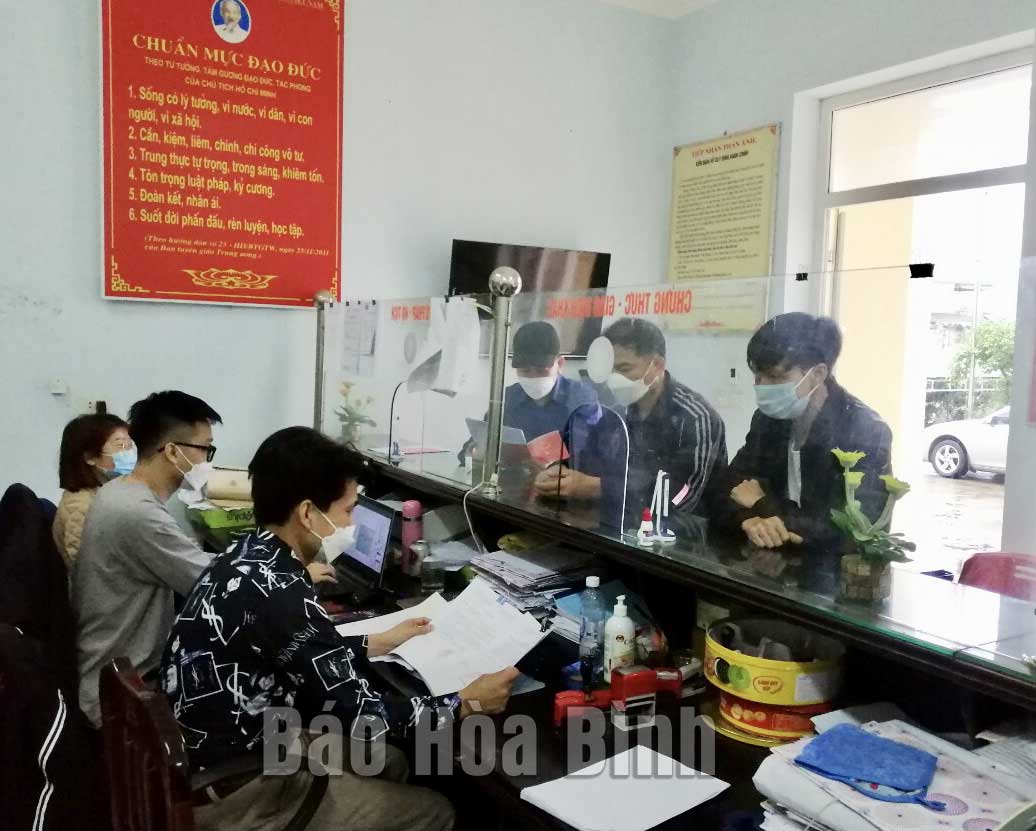
(HBO) - Lac Son district in Hoa Binh province has considered mass mobilization movement to be one of its important tasks. Many creative and effective models under the movement have been introduced in several fields, including politics, socio-economic development, culture, national defense and security.
Vu Ban town is implementing eight "targeted mass mobilization" in the economic field, such as cucumber growing with the Chieng Trao Street Farmers' Union and raising freshwater Koi fish by a household on Muong Voi street.
Pham Hong Duc, Secretary of the town's Party Committee said, "The party committee suggested discussions with people on Com, Chieng Trao and Muong Voi streets on how to best achieve site clearance, economic, cultural and social development in the area.”
Through dialogues, leaders of local party committees and local authorities can understand the public mindset to solve problems and spur development in the locality. The party committee, along with local authorities are determined to raise awareness of cadres and party members in promoting exemplary leaders.
The district is now home to 242 models under mass mobilization movement, including 119 economic development models, 65 cultural-social models, 43 defense- security models, and 15 political system development models.
In 2021, the district developed 60 new models, mainly in economic development. Outstanding models included: "Chicken raising cooperative" by Bui Van Linh in Dam hamlet, Yen Nghiep commune; "Bamboo and rattan" by the Women's Union of Tre hamlet, Van Nghia commune; "Planting Michelia tonkinensis tree” by Bui Van Dan in Be Tren hamlet, Chi Dao commune; "No one has given birth to a third child" by the Women's Union of Khay Mon and Mu Khuong hamlets, Tu Do commune, among others.
The models are built and directed to address local needs and supported by the people, representing efforts to address actual needs in society./.
Hoa Binh province is undergoing a dynamic transformation amid Vietnam’s national digital transition. Building on Poliburo’s Resolution No. 57-NQ/TW on breakthroughs in science, technology, innovation, and national digital transformation, the province has rolled out a wide range of practical action plans. A standout initiative is the "Digital Literacy for All” movement, an effort to ensure that no one is left behind in the digital era.
Hoa Binh province is undergoing a dynamic transformation in the wake of the national digital transformation movement. Building on Resolution No. 57-NQ/TW of the Politburo on breakthroughs in science, technology, innovation, and national digital transformation, the province has implemented a wide range of practical action plans. A standout initiative is the "Digital Literacy for All” movement ambitious effort to ensure that no one is left behind in the digital age.
With a spirit of unity and proactive problem-solving, the Party Committee, the government and the people of Dong Lai Commune (Tan Lac District) have made great strides in implementing the resolutions of the 24th Party Congress of the commune for the 2020 - 2025 term. Focusing on leadership and practical actions, the commune has brought the Party’s resolutions into daily life, creating strong impacts and pushing the local development forward.
Amid the nationwide push for digital transformation, young people in Hoa Binh Province are stepping up as dynamic pioneers, applying technology to enhance Youth Union operations and expand the reach of youth-led initiatives. Through creativity and adaptability, Youth Union organizations at all levels have introduced a series of practical solutions, contributing to modern governance and community development.
In recent years, An Nghia commune, located in Lac Son district, has stepped up administrative reform, focusing on improving the quality and efficiency of its single-window service unit for receiving and processing administrative procedures. These improvements have helped create favourable conditions for local residents and organisations to handle administrative procedures, contributing to the commune’s broader socio-economic development.
The Prime Minister-approved master plan to develop the multi-use value of forests ecosystems through 2030, with a vision to 2050, aims to improve the management and sustainable use of forest resources, create jobs, increase incomes, and improve the living standards of ethnic minorities, people in mountainous and remote areas, forest workers and those living near forests.



